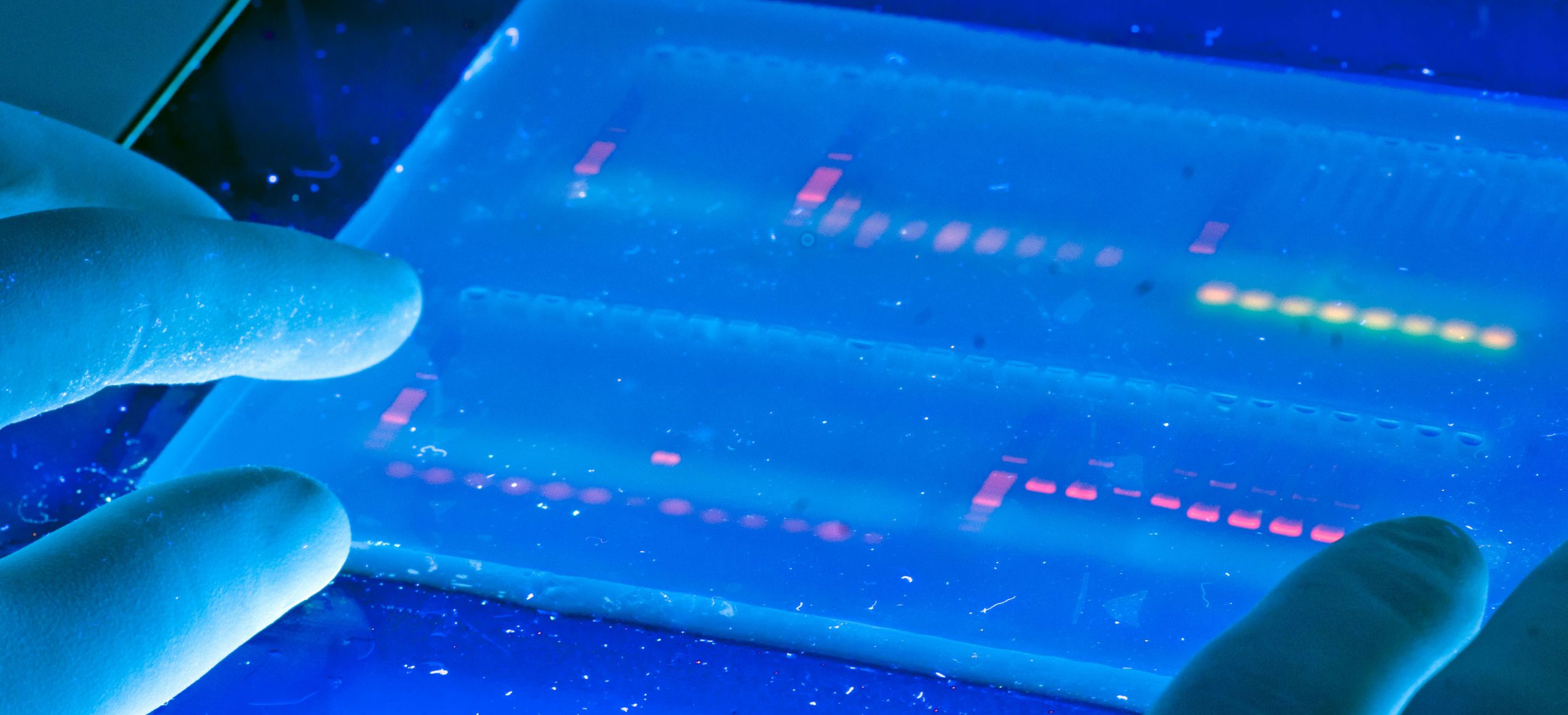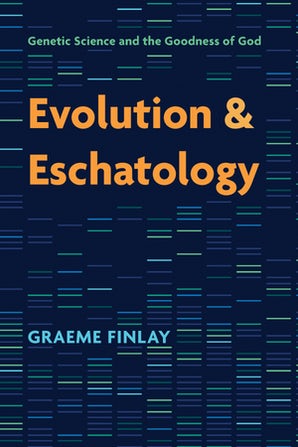
© School of Natural Resources from Ann Arbor, Creative Commons Attribution 2.0 Generic license
Our DNA contains multiple clues to our history: who we’re related to, where our ancestors came from, and in some instances – what they were capable of. The New Zealander Dr Graeme Finlay has spent his career exploring the chapter of our genetic history that affects whether (and how) we might develop cancer. As a Christian, he has also spent time looking at topics where genetics and theology meet. He is the author of the Faraday Paper ‘Human Genomics and the Image of God’, and a more in-depth book on the same topic.
Graeme’s new book, Evolution and Eschatology, looks in parallel at God’s acts in human history and the history of the wider living world. Using the development of the placenta, brain and immune system, he creates a series of scientific parables, drawing connections between the scientific and biblical stories. The histories that both science and the Bible reveal are messy, unpredictable, painful and at times chaotic, but God is able to draw order out of the chaos. We see the vital importance of relationship, unity in diversity, and caring for the weak. These two strands of history come together when God appeared as an embodied person, sharing the weaknesses of our biology.
The author doesn’t flinch from tackling the issue of suffering, but ties his exploration very closely to eschatology which (whether or not you agree with his conclusions on suffering) keeps the focus on what’s most important. This brief book presents an opportunity for the scientifically-minded pastor to dig into the latest genetics in an approachable format, and (in the final chapter) to look at one way of dealing with the issue of theodicy. There’s a good amount of scientific detail, and a glossary and plenty of figures will guide the amateur or out-of-date biologist through the material. In what follows, Graeme shares some of his journey on coming to write the book.
When I entered university to study biology, I knew little of the science of evolution, except that some people argued about it. I accepted the main-stream science I was taught, evolution included. By doing so, I jettisoned any thought that there might be gaps in scientific knowledge which might be used to argue for belief in God. I did not want props to Christian faith that might prove indefensible. A brief feeling of vulnerability followed. Now my faith had no basis other than God’s self-disclosure in Jesus! With that recognition came a great moment of liberation. For that disclosure was the whole point of being a disciple of Jesus! I had discarded a lot of baggage and enjoyed a new freedom. The gospel of Jesus was not only necessary, but sufficient for my faith. And I could follow science wherever the evidence led.
I loved cell biology and worked in a cancer research laboratory. But after a few years, I felt that, just as I had spent years studying biology, I should learn about Christian theology in a systematic way. I sought the advice of a wonderful Christian scholar, Harold Turner (who had described how the roots of science are to be found in the worldview of the apparently insignificant Hebrew tribes). He told me how I could obtain a theology degree by correspondence with the University of South Africa. I especially enjoyed the study, part-time…
But I could not escape from the science-theology interface. As I was completing my BTh (in the late 1990s), the human genome was being sequenced. Scientists were determining the order of the three billion letters that make up each set of the human genome (comprising twenty-three chromosomes). Genome science firmly—indeed incontestably—established our evolutionary origins, demonstrating that our closest relatives were chimpanzees, then gorillas, then orangutans. I felt compelled to help Christians see the significance of this revolution. I wrote a book on how mutations have elucidated our evolutionary history. I hoped that everyone would abandon unproductive and harmful controversies and single-mindedly seek out the truthfulness, love, and goodness of God.
Perhaps people who were accustomed to—even addicted to—150 years of controversy were upset by my approach. My defence is that I entered the discussion about evolution and Christian faith only because the genetic findings providedconclusive evidence of our evolution. (The logic underlying this conviction was inculcated into me through a lifetime’s work in cancer research—see later!) I wanted people to know that evolutionary history was not atheistic or dehumanizing. In fact, the historical sciences could be wonderfully integrated with biblical thought. This book represents recent engagements with genome science of humans and other mammals….
People might find the results of such an exploration upsetting. Does a direct genetic connection with (other) apes and monkeys call into question our distinctiveness as humans created by God? We have to reflect on biblical and theological foundations of our faith. If some adjustment of our understanding is needed, it should be liberating—as I found, it may bring us to a new and inspiring vision of the ways of the God revealed in Jesus….
On the one hand, biological evolution—our descent from progenitors of anthropoid primates, then (further back) of all mammals—is firmly established by the sort of approaches I have described. We and warthogs do share common ancestors. On the other hand, the center of my understanding of reality is that the creator God has been made known through Jesus of Nazareth, whose death on a cross is redemptive for me and for all of creation, and whose bodily resurrection is the guarantee that God will transform this groaning creation into one which is imperishable, and which will truly reflect the glory of God. There is a third point which seems to be vital. Biological evolution does not belong to the category of creation, but to the category of history. Creation includes all histories. We seek to understand the providence of God in biological history in precisely the same way as we seek to understand the providence of God in the history of the Jews, or (for that matter) in the history of the Roman Empire or of the piano.
In between those certainties, I am feeling my way, but hope that my reflections will be useful to others. Many highly erudite writers have already sought to clarify the relation between Christian faith and evolutionary science…the following pages insert my lifetime’s reflections into this framework.
 This extract from Evolution and Eschatology: Genetic Science and the Goodness of God by Graeme Finlay (Cascade books, 218 pages, £21) was published here by permission of the author and publisher.
This extract from Evolution and Eschatology: Genetic Science and the Goodness of God by Graeme Finlay (Cascade books, 218 pages, £21) was published here by permission of the author and publisher.




